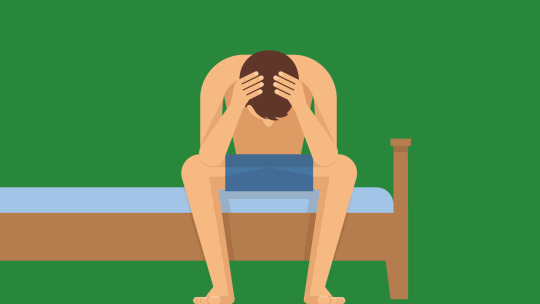Don't wanna be here? Send us removal request.
Text
0 notes
Text
0 notes
Text
0 notes
Text
Sexual Health in Later Life: What You Need to Know
As we age, our perspectives, priorities, and bodies undergo transformations. One aspect that remains integral to overall well-being is sexual health. While it may evolve, it doesn’t diminish with age. In this article, we delve into the realm of sexual health in later life, providing insights and guidance for embracing intimacy as we age.

1. A Shift in Perspective
Changing Priorities: Intimacy might take on new meanings as relationships mature and personal priorities shift.
Embracing Change: Accepting the evolving nature of sexual health is crucial for fostering a positive mindset.
2. Physical Changes and Communication
Body Changes: Hormonal shifts, reduced elasticity, and chronic conditions might impact sexual experiences.
Open Communication: Dialogues with partners about desires, expectations, and potential challenges are vital.
3. Emotional Well-being
Confidence and Acceptance: Developing self-confidence and accepting one’s body contribute to satisfying intimate experiences.
Emotional Connection: A strong emotional bond often enhances physical intimacy.
4. Overcoming Challenges
Health Conditions: Chronic illnesses and medications might affect sexual health. Consulting healthcare professionals can help manage these challenges.
Adaptation: Exploring new techniques, positions, or forms of intimacy can help navigate physical changes.
5. Nurturing Intimate Relationships
Communication: Open conversations about desires, boundaries, and mutual expectations enhance emotional intimacy.
Quality Over Quantity: Prioritizing emotional connection and quality intimate moments is key.
Age is no barrier to maintaining a fulfilling and satisfying sexual life. By understanding the evolving nature of sexual health, embracing communication, and fostering emotional well-being, individuals can continue to experience intimacy that enriches their later years.
“Sexual Health in Later Life: What You Need to Know” offers a comprehensive exploration of intimacy as we age. From embracing change to navigating physical shifts, the article provides insights for fostering satisfying intimate experiences in later life.
0 notes
Text
The Intersection of Sexual Medicine and Mental Health
The intricate connection between sexual health and mental well-being is undeniable. The realms of sexual medicine and mental health often intersect, influencing each other in profound ways. In this article, we navigate the complex interplay between these two crucial aspects of human experience.

1. The Mind-Body Connection
Impact on Desire: Mental health conditions like depression and anxiety can dampen sexual desire and responsiveness.
Role of Stress: Chronic stress can disrupt hormonal balance, affecting both physical and psychological aspects of sexual health.
2. Psychological Trauma and Intimacy
Impact on Intimacy: Traumatic experiences can lead to sexual dysfunction and discomfort.
Holistic Healing: Addressing underlying trauma through therapy is essential for fostering healthy intimate relationships.
3. Medications and Sexual Side Effects
Pharmaceutical Impact: Certain medications for mental health conditions can lead to sexual side effects like reduced libido or erectile difficulties.
Balancing Act: Collaborative discussions between mental health and sexual medicine professionals can help mitigate these effects.
4. Body Image and Sexual Confidence
Self-perception: Poor body image due to mental health concerns can contribute to reduced sexual confidence.
Positive Mindset: Enhancing self-esteem through therapy and self-acceptance positively influences sexual well-being.
5. Intimacy and Emotional Resilience
Building Emotional Resilience: Addressing mental health concerns leads to emotional resilience, enhancing intimacy.
Effective Communication: Healthy emotional expression fosters deeper connections with partners.
The interplay between sexual medicine and mental health is intricate and dynamic, with each profoundly influencing the other. Acknowledging and addressing mental health concerns as an integral part of sexual well-being is essential for fostering a fulfilling and satisfying intimate life.
“The Intersection of Sexual Medicine and Mental Health” explores the complex interrelationship between these two crucial facets of human experience. From the mind-body connection to the impact of medications, the article emphasizes the importance of acknowledging mental health in the realm of sexual well-being.
0 notes
Text
Sexual Medicine: Addressing the Challenges of Erectile Dysfunction
Erectile dysfunction (ED) is a common yet often stigmatized condition that affects a significant number of men. While it can be a challenging and distressing experience, it’s important to understand that ED is not a reflection of masculinity or virility. In this article, we delve into the realm of sexual medicine to address the multifaceted challenges posed by erectile dysfunction.
1. Defining Erectile Dysfunction
Understanding ED: Erectile dysfunction refers to the consistent inability to achieve or maintain an erection sufficient for satisfying sexual activity.
Prevalence: ED becomes more common with age, but it’s not exclusive to older individuals.
2. The Psychological Impact
Self-esteem and Confidence: ED can negatively impact self-confidence and contribute to feelings of inadequacy.
Relationship Strain: Communication breakdowns and emotional distance may arise due to ED-related stress.
3. The Role of Physical Factors
Vascular Health: Conditions like hypertension and diabetes can impede blood flow, a key factor in achieving and maintaining an erection.
Hormonal Imbalance: Low testosterone levels can contribute to ED.
4. Psychological Factors and Treatment
Performance Anxiety: Worrying about ‘performing’ can exacerbate ED. Therapies focusing on anxiety management can be beneficial.
Counseling and Therapy: Certified sex therapists can help couples navigate the emotional and psychological aspects of ED.
5. Medical Interventions and Lifestyle Changes
Medications: Drugs like Viagra and Cialis enhance blood flow to the penis, aiding in achieving and sustaining an erection.
Lifestyle Modifications: Regular exercise, healthy diet, and stress management can positively influence ED.
Erectile dysfunction can be a challenging journey, but it’s essential to recognize that effective solutions and support are available. Through a combination of medical interventions, psychological support, and lifestyle adjustments, individuals and couples can overcome the challenges posed by ED and regain a fulfilling and satisfying intimate life.
“Sexual Medicine: Addressing the Challenges of Erectile Dysfunction” provides an insightful exploration into the world of ED. By discussing psychological impacts, physical factors, treatment options, and lifestyle changes, this article offers a comprehensive perspective on overcoming the challenges associated with erectile dysfunction.
1 note
·
View note
Text
LGBTQ+ Sexual Health: A Comprehensive Guide

“LGBTQ+ Sexual Health: A Comprehensive Guide” dives deep into the intricacies of sexual health for LGBTQ+ individuals. From safer sex practices to navigating relationships and mental health, this article offers a holistic perspective on fostering a healthy and inclusive intimate life.
Sexual health is a vital aspect of overall well-being, and it’s important for everyone, regardless of their sexual orientation or gender identity. LGBTQ+ individuals often face unique challenges related to their sexual health, and addressing these issues is crucial for fostering a healthy, inclusive, and fulfilling intimate life. In this comprehensive guide, we explore the nuances of LGBTQ+ sexual health.
1. Understanding LGBTQ+ Sexual Health
Diverse Experiences: LGBTQ+ individuals have diverse sexual orientations, gender identities, and relationships, each with unique considerations for sexual health.
Inclusive Language: Using respectful and inclusive language when discussing sexual health is essential.
2. STIs and Safer Sex Practices
Tailored Risks: Different sexual practices carry different risks for LGBTQ+ individuals. Understanding these risks is essential for making informed decisions.
Safer Sex Strategies: Consistent and correct use of barriers like condoms and dental dams can significantly reduce the risk of STIs.
3. Mental Health and Intimacy
Stigma and Mental Health: LGBTQ+ individuals may face stigma, discrimination, and mental health challenges that can impact their sexual well-being.
Seeking Support: Mental health support is vital for maintaining a positive body image and a healthy relationship with one’s sexuality.
4. Hormone Therapy and Intimate Health
Gender-Affirming Care: Hormone therapy is a vital component of gender-affirming care. Understanding its effects on sexual health is crucial.
Communication with Partners: Open communication about hormone therapy and its potential impact on intimacy fosters understanding.
5. Navigating Relationships
Communication: Open and honest communication with partners is key to ensuring that everyone’s needs, desires, and boundaries are respected.
Consent: Clear consent is crucial in all intimate encounters, regardless of one’s sexual orientation or gender identity.
LGBTQ+ sexual health is a multifaceted topic that requires sensitivity, inclusivity, and a commitment to fostering understanding. By addressing the unique challenges faced by LGBTQ+ individuals, we can create a world where everyone can embrace their sexuality with confidence, knowledge, and respect.
1 note
·
View note
Text
The Effect of Stress on Sexual Function
In today’s fast-paced world, stress is almost inevitable. But did you know that chronic stress can significantly affect sexual function? Delving into the relationship between stress and sexuality provides a holistic view of overall well-being. In this article, we will explore how stress impacts sexual health and offer some solutions to mitigate these effects.
1. Understanding Stress and Its Sources
Before we dig deep, it’s essential to understand what stress is. Stress is a natural response to challenging situations. While short bursts of stress can be beneficial, chronic stress can have detrimental effects on the body and mind. Common sources include:
Work-related pressures
Financial strains
Relationship challenges
Health concerns
2. The Biological Mechanism
When stressed, our bodies release the hormone cortisol. In small amounts, cortisol can boost energy, heighten memory, and increase immunity. But when released excessively, it can lead to various health issues, including disruptions in sexual function.
3. Impact on Libido
One of the most evident impacts of stress on sexual health is a reduced libido. Both men and women may experience a decreased interest in sexual activities when facing prolonged stress. The reason? Excessive cortisol can lower the production of sex hormones like testosterone and estrogen.
4. Erectile Dysfunction and Stress
For men, chronic stress can lead to difficulties in achieving or maintaining an erection. This is not solely a physical challenge but also a psychological one. Performance anxiety, stemming from the fear of not meeting sexual expectations, can further compound the issue.
5. Menstrual and Fertility Issues
For women, excessive stress can lead to irregular menstrual cycles or even missed periods. Moreover, chronic stress might reduce fertility by interfering with hormone signals that regulate ovulation.
6. Emotional Detachment
The emotional aspect of intimacy is equally important. Chronic stress might make individuals feel emotionally detached, making intimacy challenging. This emotional disconnect can strain relationships and further exacerbate sexual health problems.
7. Solutions and Coping Mechanisms
The good news is that there are strategies to manage and reduce stress:
Mindfulness and Meditation: Practices like yoga and meditation can help in managing stress levels.
Physical Activity: Regular exercise is proven to reduce cortisol levels.
Communication: Talking about stress and sexual concerns with a partner can bring about understanding and support.
Professional Help: Therapists or counselors can provide strategies and coping mechanisms tailored to individual needs.
Stress and sexual health are intrinsically linked. Recognizing the effect of stress on sexual function is the first step towards addressing and improving overall well-being. By adopting stress-reducing strategies and seeking support when needed, individuals can ensure a healthy, fulfilling sexual life.

1 note
·
View note
Text
1 note
·
View note
Text
1 note
·
View note
Text
2 notes
·
View notes